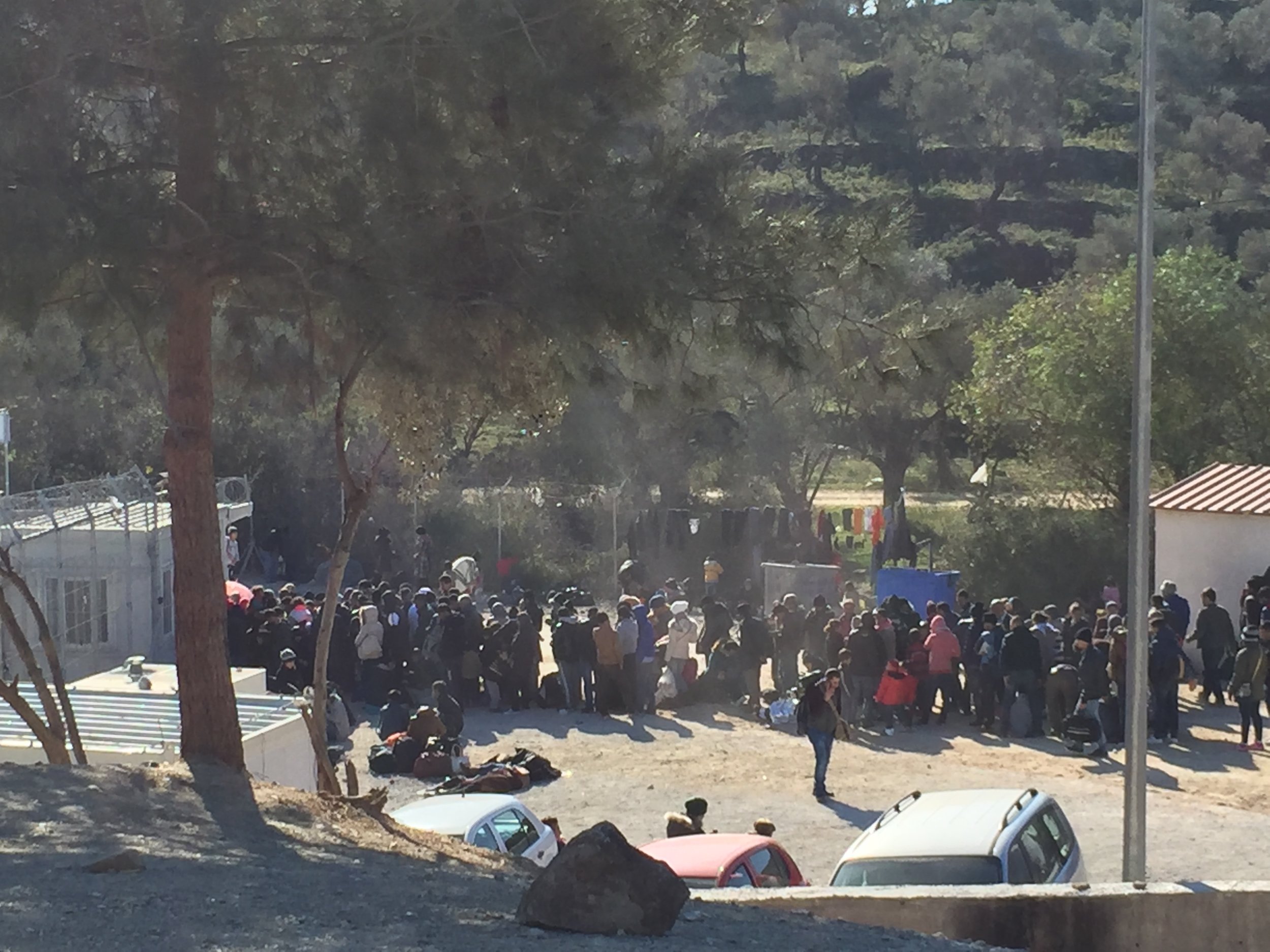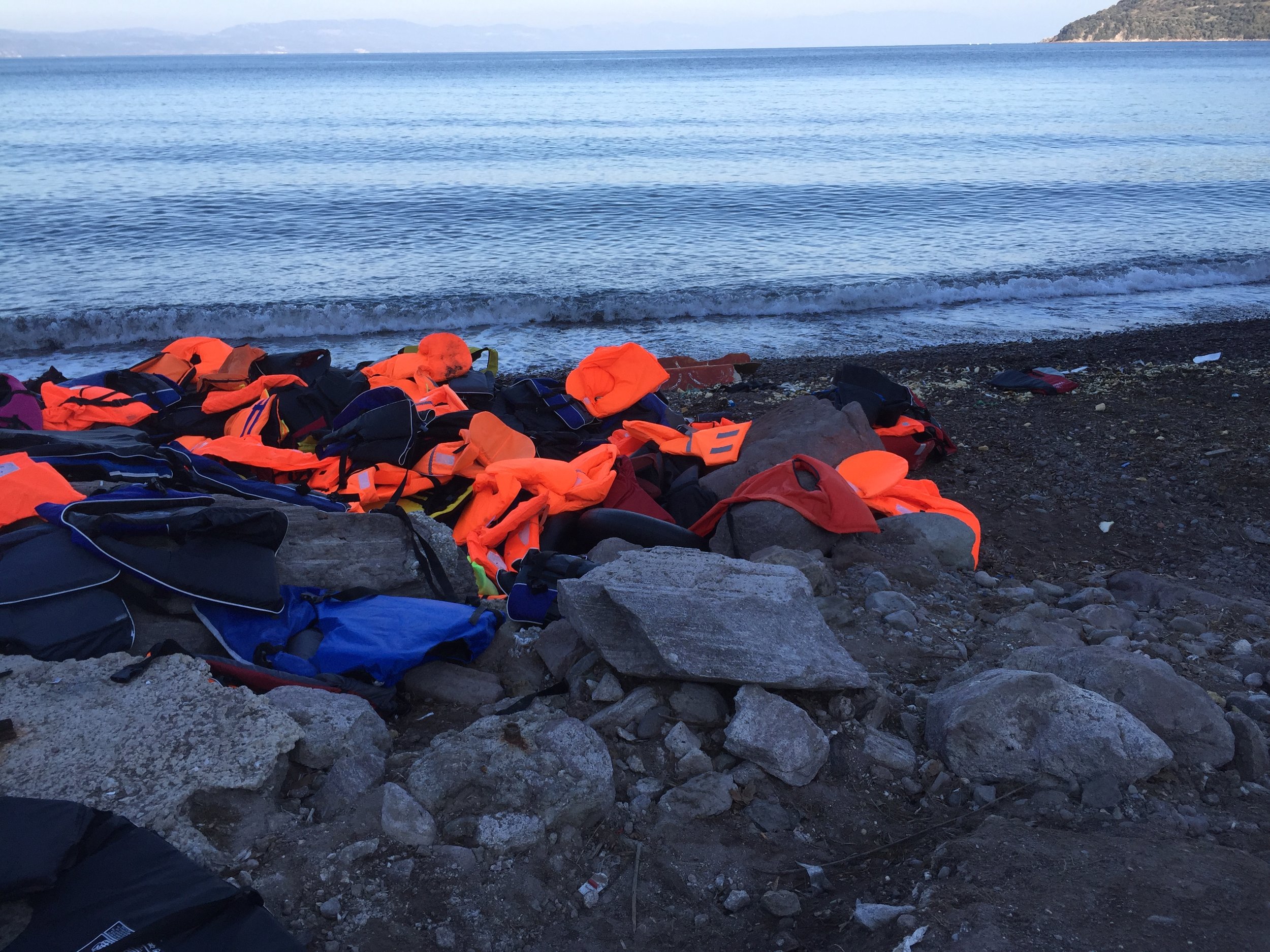“It is something that will inform what I do with the rest of my life.”
Joseph Bock has been involved in almost every type of humanitarian relief effort, from natural disasters to civil wars around the globe. He directed Catholic Relief Services’ programs in Pakistan, Jerusalem, and the West Bank and Gaza. As vice president of the American Refugee Committee he oversaw programs in Bosnia, Croatia, Guinea, Iraq, Kosovo, Liberia, Macedonia, Montenegro, Pakistan, Rwanda, Serbia, Sierra Leone, Thailand, Nepal, and Uganda.
Despite his vast experience managing disaster relief, he says he’s never seen a humanitarian crisis as raw and disturbing as the one he witnessed in Athens when he was a Fulbright Specialist in 2015.
Many of those arriving in the Greek port city fled the bloody civil war in Syria, oppression in Iran, and ongoing instability in Afghanistan. Eritrean, Ethiopian, and Somali refugees are also among the refugee population. They endured treacherous journeys in small, battered wooden or inflatable boats to reach Europe, often losing loved ones along the way.
“What these people had been through already and the predicament of the city was unbelievable,” says Bock, director of the International Conflict Management Program at Kennesaw State University in Georgia.
Bock traveled to Athens on a short-term Fulbright Specialist grant to support local municipal officials seeking advice on managing the influx of refugees and migrants.
“Fulbright is known for academics and this was a humanitarian response,” continues Bock, who has Bachelor’s and Master’s degrees in social work, a Doctorate in international relations.
“I was very happy to be involved,” Bock added. “I think it’s a really good direction for Fulbright to go in.”
Founded in the aftermath of World War II, the Fulbright Program was established to foster mutual understanding between the U.S. and countries around the world. The Fulbright Specialist Program enables U.S. professionals and scholars to work on short-term projects overseas in conjunction with local host institutions.
Bock primarily worked on a strategic plan to help the city cope with the massive influx of refugees and migrants with the aim of reducing tensions and maintaining stability in Athens. The city faced a perfect storm: economic depression, an estimated 50% youth unemployment rate and 100,000 new arrivals, many without legal status. Bock’s plan addressed violence prevention and identified the benefits of language training, acculturation classes, student visas, and temporary work permits to help new arrivals.
While in Athens, he skyped with his American students in Georgia about the situation on the ground. Bock also involved them in conceptualizing specific projects, such as how crowdsourcing can be used for identifying people in distress at sea.
“This is the new normal,” Bock says. “We need to get used to the fact that as the world warms up and social media allows people to communicate instantaneously more people will be on the move. We need to learn to adapt.”
As he sees it, the Fulbright Specialist Program is “on the cutting edge,” enabling academics to become practitioners and use their expertise overseas in crisis situations. He says he hopes the program continues to serve as a bridge between the two worlds.
“It is something that will inform what I do with the rest of my life,” Bock says. “I wish I could have done more good while I was there.”
“I think it exposes you to things you wouldn’t otherwise get exposed to. The real world pathos,” Bock explains. “To see the people coming off the boats in Lesvos. The people of Greece so generous. There is no way I could have understood this from reading the New York Times.”



